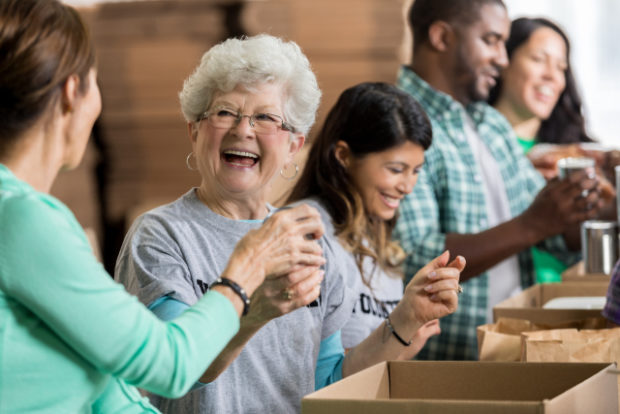Volunteering improves well-being, reduces risk of death for older adults — study

Image: istock.com/Steve Debenport via AFP Relaxnews
A new American study has found that regular volunteer work could help boost health and well-being for older adults.
Led by researchers at Harvard TH Chan School of Public Health, the new large-scale study looked at nearly 13,000 participants taking part in the Health and Retirement Study (HRS), which includes a nationally representative sample of older adults in the United States.
The participants completed surveys and face-to-face interviews so the researchers could assess 34 measures of physical health and psychological/social well-being and were followed for four years.
The findings, published in the American Journal of Preventive Medicine, showed that adults over the age of 50 who volunteer for at least 100 hours a year — which is around two hours a week — benefited from a large reduction in their risk of developing physical limitations and their risk of death. Later on in the study, they also had higher physical activity levels and an improved sense of well-being, compared to those who didn’t volunteer.
However, although the findings confirmed what previous smaller studies have also found, the study didn’t confirm links between volunteering and improvements to chronic conditions such as diabetes, hypertension, stroke, cancer, heart disease, lung disease, arthritis, obesity, cognitive impairment, or chronic pain.
“Humans are social creatures by nature. Perhaps this is why our minds and bodies are rewarded when we give to others. Our results show that volunteerism among older adults doesn’t just strengthen communities, but enriches our own lives by strengthening our bonds to others, helping us feel a sense of purpose and well-being, and protecting us from feelings of loneliness, depression, and hopelessness. Regular altruistic activity reduces our risk of death even though our study didn’t show any direct impact on a wide array of chronic conditions,” explained lead investigator Dr. Eric Kim.
Although social contact is always advisable, due to the current COVID-19 pandemic, Dr. Kim added that “now might be a particular moment in history when society needs your service the most. If you are able to do so while abiding by health guidelines, you not only can help to heal and repair the world, but you can help yourself as well.”
“When the COVID-19 crisis finally subsides, we have a chance to create policies and civic structures that enable more giving in society. Some cities were already pioneering this idea before the pandemic and quarantine, and I hope we have the willingness and resolve to do so in a post-COVID-19 society as well,” he added. IB
RELATED STORIES:
Smoking pod-based e-cigs might make users more hooked on nicotine
Monkeys, ferrets offer needed clues in COVID-19 vaccine race
For more news about the novel coronavirus click here.
What you need to know about Coronavirus.
For more information on COVID-19, call the DOH Hotline: (02) 86517800 local 1149/1150.
The Inquirer Foundation supports our healthcare frontliners and is still accepting cash donations to be deposited at Banco de Oro (BDO) current account #007960018860 or donate through PayMaya using this link.